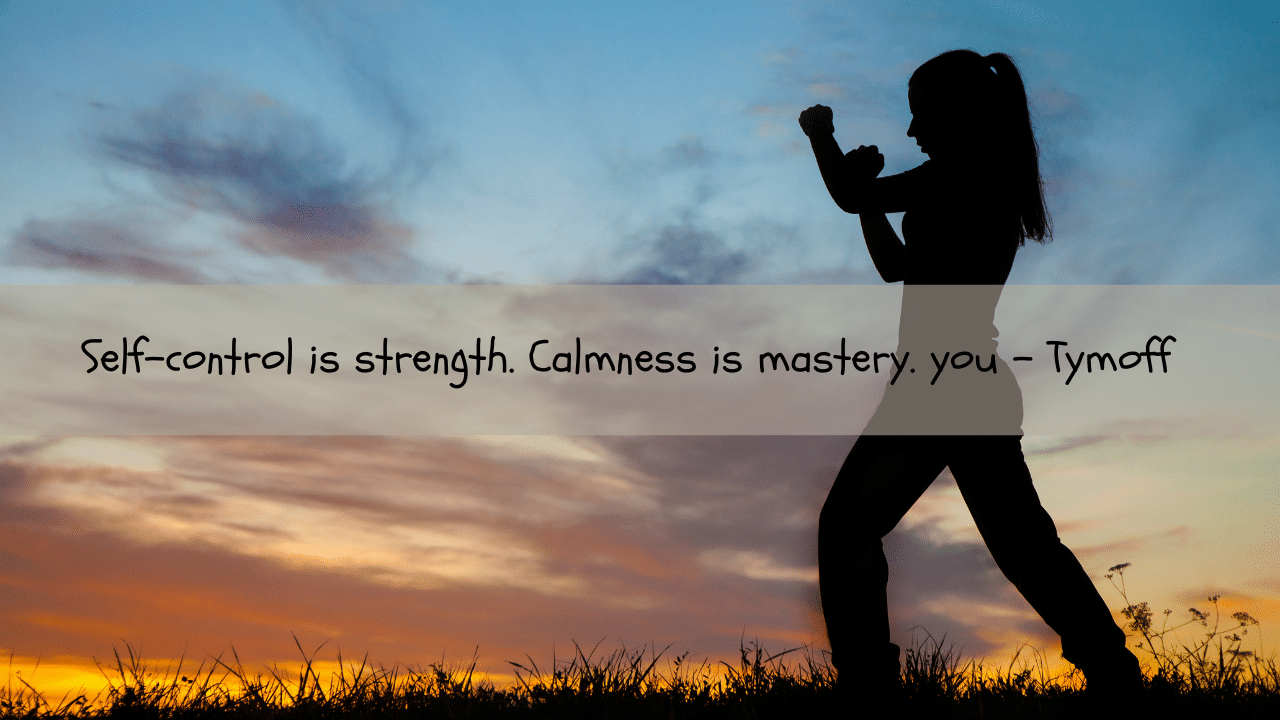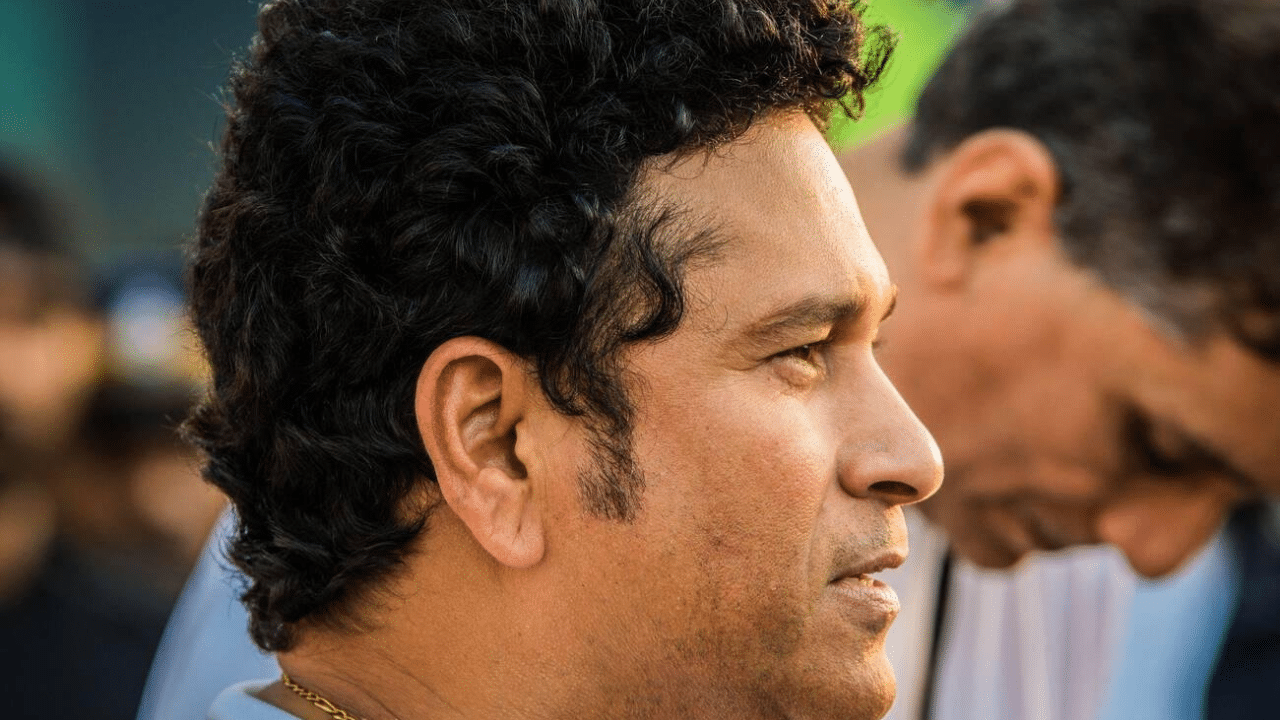In our busy lives, it’s easy to feel like we’re not in control. We react quickly, sometimes without thinking, whether it’s snapping at a friend or reaching for an unhealthy snack. It feels easier to let go and act on impulse than to take a step back and think things through.
But what if there was a way to change that? The concept of self-control is the secret power behind many successful people. It allows them to make better choices, leading them closer to their goals.
Self-control is more than just resisting temptation; it’s about being able to manage your thoughts, feelings, and actions in a way that benefits you in the long run. Likewise, staying calm even when things get tough can transform challenges into stepping stones toward success.
This article will show you how practices like mindfulness meditation and creating supportive environments can build up your self-discipline muscles. Plus, discover why finding peace might be as simple as spending time in nature or taking deep breaths.
Ready for change? Keep reading!
TLDR
Self-control and calmness are essential skills for personal success and well-being. Self-control involves managing impulses and focusing on long-term goals, while calmness enables clear thinking and productivity. Techniques such as mindfulness meditation, deep breathing, delaying gratification, and spending time in nature can help enhance self-control and achieve inner peace.
By creating an environment that fosters self-discipline and practicing these strategies regularly, individuals can improve their emotional regulation, decision-making, and overall quality of life, ultimately leading to greater success in both personal and professional domains.
The Essence of Self-Control
Self-control stands as the foundation for achieving personal goals. It involves managing our immediate desires to reach long-term successes.
Defining Self-Control and Its Core Value
Self-control is the power to control impulses and react in healthy ways. It means not grabbing that extra cookie, even when you really want it. For me, this has often meant taking a deep breath before answering an email that made me angry or choosing to walk away from an argument instead of saying something hurtful.
With the help of this strength, we are able to set goals and accomplish them without giving in to temptation or other distractions.
Its core value lies in its impact on personal and professional success. People with strong self-control can handle stress better, build stronger relationships, and achieve their long-term goals.
It’s like having a superpower that keeps you calm and focused no matter what life throws your way. From my experience, practicing self-control has led to improved emotional stability and resilience, making it easier to navigate challenges with grace.
Self-Control: The Gateway to Achieving Personal Goals
Building on the foundation of what self-control means, it becomes clear that this skill is crucial for reaching personal targets. Mastery of self-discipline helps people set and achieve their goals.
With strong self-control, you can resist temptations that might lead you away from your goals. This shows in better health choices, more effective study habits, and stronger willpower in tough situations.
Self-control acts like a muscle; the more you use it, the stronger it gets. Practicing restraint improves your ability to handle stress and avoid impulsive decisions. This leads to higher emotional well-being and resilience, making goal achievement not just possible but probable.
Techniques such as setting clear objectives help sharpen focus and encourage progress. Each step taken with self-discipline brings you closer to where you want to be, proving that control over oneself is indeed the gateway to fulfilling personal ambitions.
Techniques for Enhancing Self-Control
To grow your self-control, practicing mindfulness and waiting before acting can help. Creating a space around you that supports focus and good habits also plays a big role.
The Role of Mindfulness and Delaying Gratification
Mindfulness helps us focus on the present moment. It teaches us to notice our feelings, thoughts, and surroundings without judgment. This skill is vital for self-control because it lets us pause before acting impulsively.
For example, when I started practicing mindfulness through meditation and deep breathing exercises, I noticed a shift in how I reacted to stress. Instead of reaching for snacks or my phone right away, I took deep breaths and asked myself what I really needed in that moment.
Delaying gratification means waiting for a better reward instead of choosing immediate pleasure. It’s like saving money for a big vacation rather than spending it on small things now.
This strategy improves our ability to manage thoughts, emotions, and behaviors over time. People who practice delaying gratification tend to have better emotional health and achieve their goals more often.
In my own life, setting clear goals and rewarding myself only after completing tasks has helped me stay focused and motivated. This combination of mindfulness and delaying gratification builds a strong foundation for mastering self-control and calmness.
Building an Environment that Fosters Self-Discipline
Create a space at home that is quiet and free from distractions. This helps you focus and practice self-discipline every day. Keep things like your phone, TV, and video games in another room when it’s time to work or study.
This makes saying no to temptations easier.
Use tools like planners and calendars to plan your days. Writing down your tasks gives you a clear plan to follow. It also feels good to check off tasks when you complete them. This keeps you motivated and on track towards your goals.
Understanding Calmness as a Form of Mastery
Calmness stands as a strong skill in both work and life. It lets us think clearly and make better choices.
The Significance of Calmness in Daily Life
Calmness plays a big role in how we focus, create, and get things done every day. It lets us think clearly and make better choices. This peaceful state helps us manage stress well and keeps our minds and bodies healthy.
With calmness, we can also solve problems better and find new ideas.
Staying calm also improves how we talk to others and fix disagreements. It makes our relationships stronger because we listen more and understand others’ feelings better. Through practices like mindfulness meditation and taking time in nature, achieving this peace is possible for everyone.
How Calmness Fosters Clear Thinking and Productivity
Being calm allows your brain to focus better. This means you can solve problems faster and come up with more creative ideas. I found this out myself during a very busy time at work.
Instead of panicking, I took deep breaths and focused on one task at a time. The result? I completed my projects quicker and with fewer mistakes.
Calmness also boosts productivity by reducing stress levels. Lower stress means you’re less likely to get sick and more likely to stay motivated. For example, practicing meditation daily has helped me feel less overwhelmed by deadlines and more in control of my workload.
This has led to finishing tasks ahead of schedule without feeling burned out.
Strategies for Achieving Calmness
To reach peace of mind, practicing mindfulness breathing and spending time in nature are vital steps. These actions help clear your head and boost feelings of relaxation.
Techniques in Mindfulness Meditation and Breathing
Mindfulness meditation is a powerful tool for finding inner peace and managing stress. It involves sitting quietly and paying close attention to your thoughts, breath, or surroundings without judgment.
Start by finding a comfortable spot where you won’t be disturbed. Close your eyes gently and focus on your breathing. Notice the air moving in and out of your body, the rise and fall of your chest, or the sensation at your nostrils.
When your mind wanders, as it will, simply notice that without criticism and bring your attention back to your breath.
Breathing techniques are another key part of achieving calmness. One method I’ve found helpful is called “diaphragmatic breathing,” where you breathe deeply into the bottom of your lungs, causing the stomach to expand before exhaling slowly.
This can lower blood pressure, reduce stress hormones in the body, and help with emotional regulation.
These practices don’t need special equipment or a lot of time; just dedication to making them part of daily life for better mental well-being and clarity. Overcoming distractions becomes easier with persistence in these exercises, leading not only to improved focus but also a greater sense of control over one’s emotional responses.
Finding Peace Through Nature
Spending time outdoors works wonders for your mental health. It helps you feel calm and in control. Trees, water, and fresh air bring a sense of peace that’s hard to find elsewhere.
This tranquility boosts your ability to manage stress and make good decisions. I remember walking through the park last spring. The greenery and peaceful sounds cleared my mind like nothing else could.
Nature is not just beautiful; its impact on well-being is profound. Regular walks in nature can prevent anxiety, depression, and heart problems. These benefits lead to a healthier life with more emotional balance.
This path guides us towards mastering self-control and maintaining calmness in our lives.
Next, let’s look at how writing down your thoughts can further help manage stress.
Takeaways: The Synergy of Self-Control and Calmness for Success
Mastering self-control and staying calm make us strong. We learned how mindfulness helps us wait for rewards and builds our willpower. Surroundings that boost discipline also play a big part.
Calmness not only makes our daily lives better but also sharpens our thinking and increases work output. Mindfulness meditation, deep breathing, and enjoying nature teach us peace.
These steps are easy to use and really work. They improve health, balance emotions, make choices easier, solve problems better, and handle stress like pros. Achieving big goals gets easier as we resist quick fixes that distract us.
For more tips on staying focused and peaceful, check out books on mindfulness or classes on meditation in your area. Remember: “Calmness is Mastery”. Let this guide inspire you to find your strength through patience and quiet power today!






































